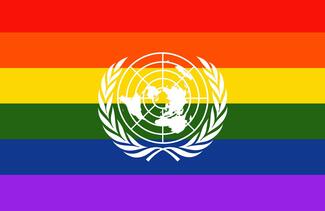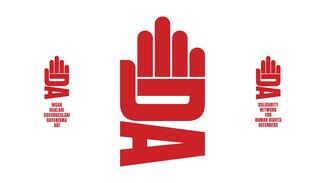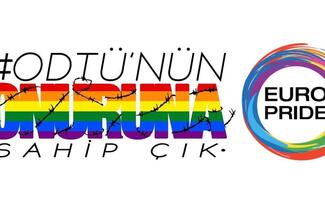
The member organisations of Solidarity Network for Human Rights Defenders have written a letter to the United Nations (UN) special mandate holders, underlining the recent increase in attacks on LGBTI+ people in Turkey. The letter demands an urgent intervention from the UN authorities.
The letter has been addressed to the UN Independent Expert on Sexual Orientation and Gender Identity, Special Rapporteur on the Rights to Freedom of Peaceful Assembly and Association, Special Rapporteur on the Promotion and Protection of the Right to Freedom of Opinion and Expression and the Special Rapporteur on the Promotion and Protection of Human Rights while Countering Terrorism.
The letter listed the attakcs on LGBTI+ people in the aftermath of July 15, 2016 coup attempt under the increasingly diminishing rule of law and protection of human rights inTurkey. Within this context, the letter cited the bans imposed on the LGBTI+ events, some of which are still ongoing. It also stressed the legal harassment, physical attacks as well as the systematic discrimination and hate speech targeting LGBTI+ persons and rights defenders.
The letter reminded the UN special mandate holders of the recent statements made by the head of Directorate for Religious Affairs, Ali Erbaş, on April 24, 2020 targeting LGBTI+ people and the developments seen following the reaction shown by several bar associations against the statement. The letter underlined the serious increase in the hate speech against LGBTI+ persons in Turkey following Erbaş’s remarks and the failure of the judiciary to properly prosecute those who commit crime in their remarks against LGBTI+ people. Accordingly, this year on Pride Week many high ranking state officials, politicians and pro-government media outlets used hate speech and these contradict the domestic law as well as the international legal obligations of Turkey.
The letter stressed the fact that the Turkish Constitution guarantees the right to freedom of expression and of association under Articles 26 and 34; that Article 10 of the Constitution states that “Everyone is equal before the law without distinction as to language, race, colour, sex, political opinion, philosophical belief, religion and sect, or any such grounds. “ Furthermore, according to the letter, Article 90 of the Constitution states that “In the case of a conflict between international agreements, duly put into effect, concerning fundamental rights and freedoms and the laws due to differences in provisions on the same matter, the provisions of international agreements shall prevail.”
The letter highlighted that although the concept of “discrimination based on sexual orientation and gender identity” is not included in the Constitution or other relevant laws , hate speech and discrimination is against the law based on the abovementioned Constitutional principles, international legal obligations of Turkey as well as Article 3 of the Turkish Penal Code on equality before the law, Article 122 which defines discrimination and hate speech as criminal act and, lastly, Article 216 penalising public incitement to hatred and hostility against a section of the public against another section which has a different characteristic.
The letter stated that the prohibition of discrimination is a customary rule of international law. Terefore, under any conditions, including that of state of a emergency, can this ban be circumvented by exceptions and Turkey, accordingly, cannot derogate from its international law obligations concerning prohibition of discrimination .
The letter further explained that Turkey’s restrictive policies towards the LGBTI+ community and the problematic language recently adopted by the high ranking government and state officials constituing hate speech can lead to grave consequences in the near future as it legimitizes, in the eyes of the government supporters, violence.
The human rights organizations which signed the letter invited the UN special mechanisms to, among others, invite the Turkish authorities to seize the discriminatory hate speech against LGBTI+ people by the state officials, to ensure the Turkish government complies with its domestic and international law obligations and to urge Turkey to take necessary steps to protect the LGBTI+ community from any attacks.


